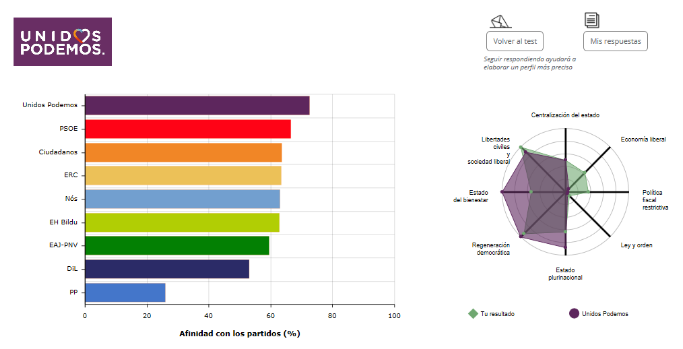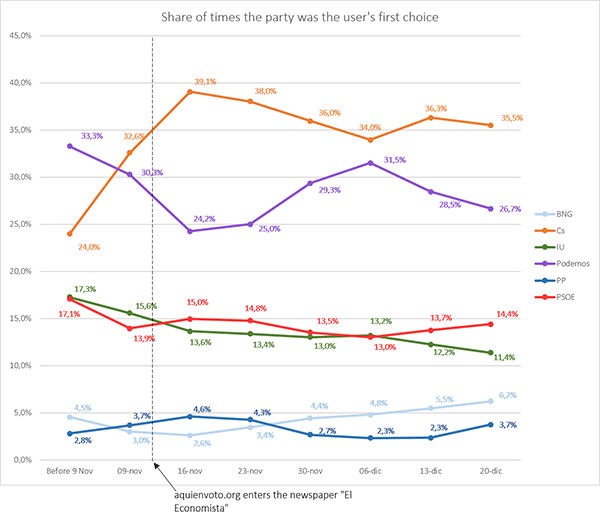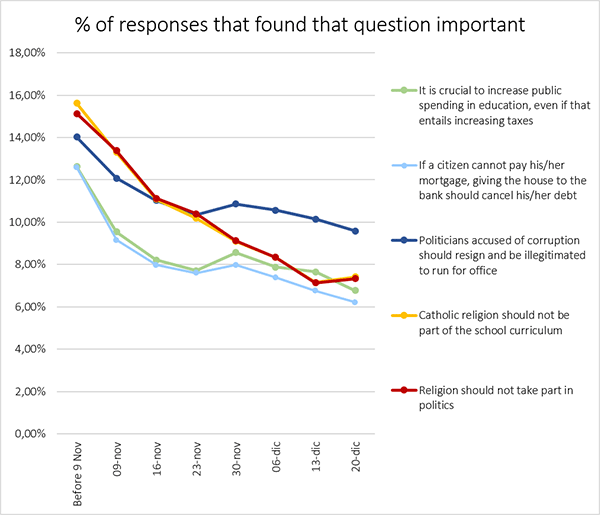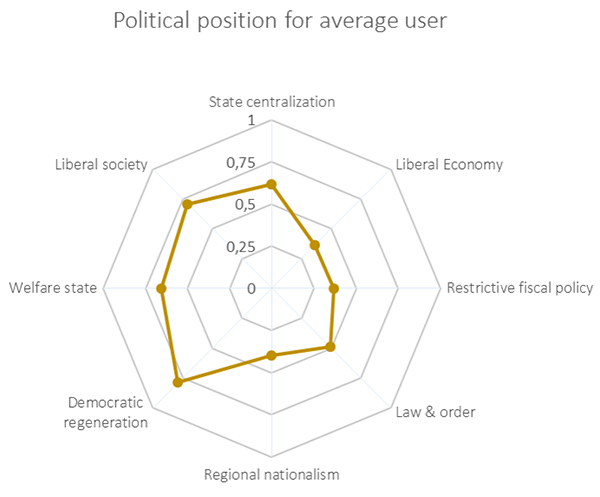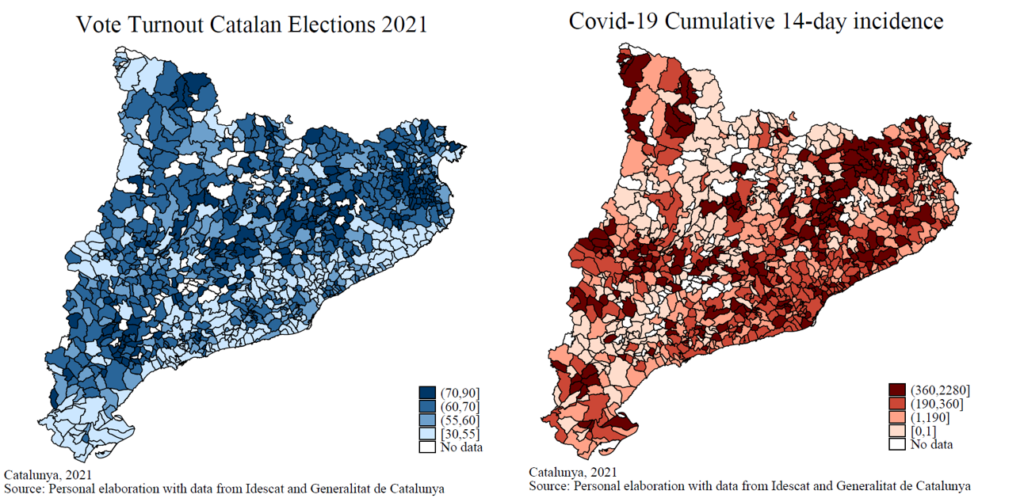
Editor’s note: this article was originaly published in the popular economics blog, Nada es Gratis (in Spanish).
In the Catalan elections held on 14 February 2021, just a few weeks after the peak of the third wave of COVID-19, voter turnout was significantly lower than in 2017 (51.3% compared to 79.1%) and the lowest in history. Despite the political context being different compared to 2017, in the run-up to the election predicted turnout remained at similar levels until the emergence of Covid-19 – whereupon it dropped sharply. In these extraordinary elections, the vote share of the parties changed which shifted the Catalan political spectrum.
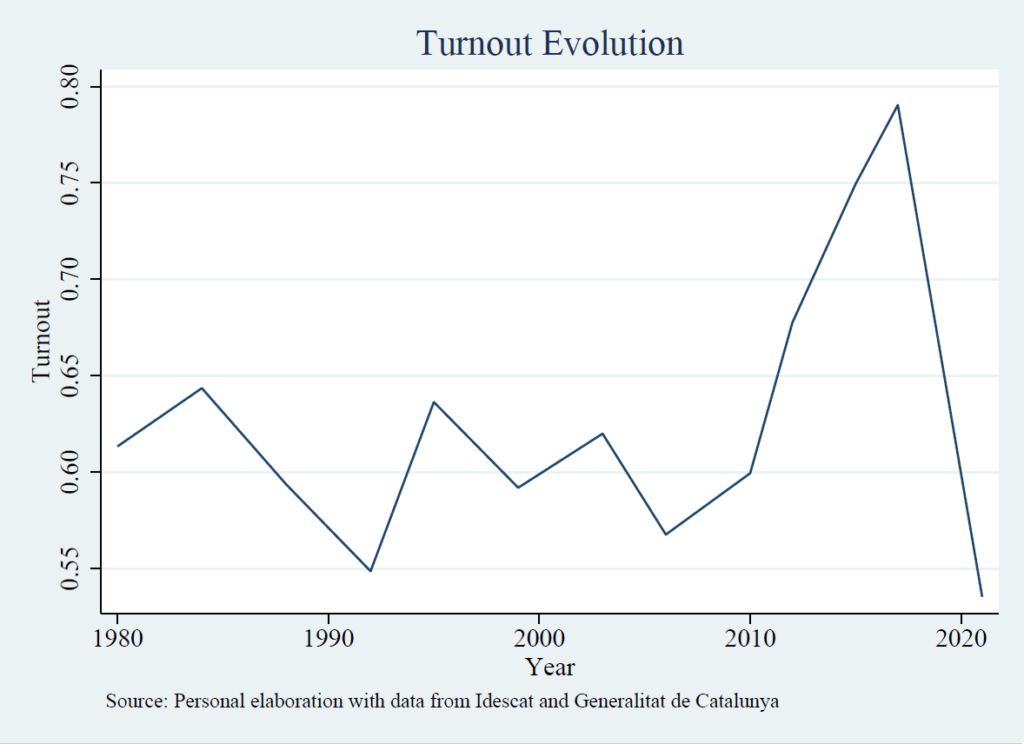
We study this relationship between Covid-19 and electoral results in Catalonia. To estimate the effect of the pandemic we explore the differences in cumulative Covid-19 incidence at the municipal level and compare it with electoral outcomes controlling for economic and demographic variables (population density, percentage of over-65 years old, share of foreign population and the unemployment rate).
The most widely used model of electoral participation, that of Riker and Ordeshook (1968), considers that the decision to participate is based on a cost-benefit trade-off between the expressed benefit of voting (feeling fulfilled, considering that civic duty is fulfilled, etc.) and the cost that individuals associate with participation. This cost rose sharply, because voting implied a higher risk of contracting the disease and the inconvenience caused by anti-covid measures. Therefore, higher costs would imply lower turnout as shown by several empirical studies, which find that with small increases in cost turnout drops significantly (eg. Aldrich, 1993). We assume that the increase in cost is the same for all (although there could be differences by age, and so we control for the most vulnerable group, the over-65s), which would imply a fall in participation, but could also induce changes in the outcome. This change may be due to differences in the “sentimental” benefit of voting between voters of different parties.
Economic theory also indicates who voters choose, conditional on voting. According to “retrospective” voting theory, voters support or punish parties in government in response to their performance in a crisis such as Key (1966). In contrast, according to “prospective” voting theory, the individual votes for the party that he believes will do better or, as Leininger and Schaub (2020) argue, seeks to match the party in regional and national government for more optimal crisis management.
Effect on participation
As seen in the maps above, the areas with the highest cumulative Covid incidence also have a lower percentage of participation, especially the Barcelona metropolitan area. Our analysis shows that an increase of 100 points in cumulative incidence in the last 14 days is related to a drop of 2.6 percentage points in turnout. To understand the magnitude, this is equivalent to one extra Covid case in a municipality of 1,000 inhabitants, so we estimate that the effect of the pandemic is quite high. To understand the impact of the second and third waves of Covid-19, we have conducted the analysis with cumulative incidence measures in the last month and in the last 4 months prior to the elections. However, as the period lengthens, the effect on turnout decreases (1.3 and 0.4 percentage points respectively).
However, the political context also changed: while in 2017 the voting framework was centred on the independence process (which led to the historical record turnout); in 2021 it was the pandemic that defined the elections. However, the trigger for this change of context (and the neglect of the independence process) was the eruption of the virus. As can be seen in the graph below showing the predicted turnout for the elections to the Parliament of Catalonia. Since Covid-19 appears to be the only element of exogenous variation between municipalities when comparing the 2017 and 2021 elections, we can infer causality.
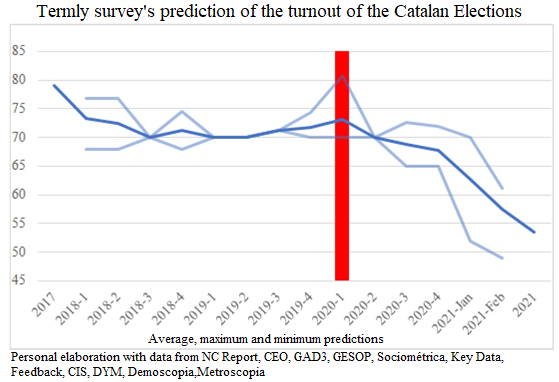
These results are in line with the theory of the myopic voter who takes into account episodes closer to the election when voting. In this case, the myopic voter is acting rationally, as they account for the actual risk at the time of the vote rather than the risk of the past few months.
Effect on results
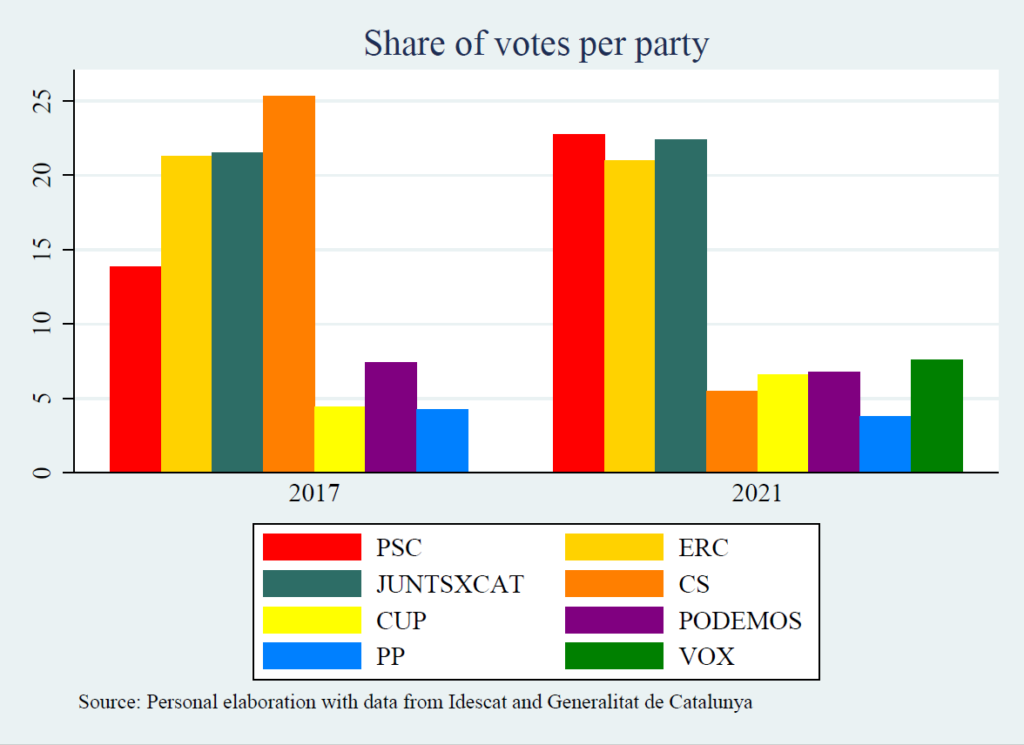
Secondly, the elections brought a major shift in the political spectrum, as can be seen in the bar charts above. For this reason, we have not been able to include other elections, as they were not comparable with each other. We have grouped the political parties into the following ideological and identity groups:
- Pro-independence left: ERC and CUP.
- Pro-independence right-wing: JUNTSXCAT and PDECAT
- Non-independence left-wing: PSC and PODEMOS
- Non-independence right: PP, Cs, and VOX
First, we respectively analyse the pro-independence and non-independence groups, the victors (the pro-independence coalition), and the opposition. The results show that the pandemic has a positive effect on the percentage of the vote of the pro-independence parties and a negative effect on the non-independence group. This effect can be seen as a retrospective vote, showing a certain approval by pro-independence voters of how the regional government has handled the pandemic.
On the other hand, in the analysis of the groups divided into identity and ideological groups, we find that the group with the highest positive coefficient is the non-independence left – the coalition in charge of the central government at the time of the elections. This behaviour is associated with the prospective vote. With the arrival of Salvador Illa (The Spanish Minister of Health during the pandemic) as the PSC candidate, the party was reinforced and ends up as the winner of the elections. This positive effect can be seen as an attempt to align the post-pandemic recovery strategy in Catalonia with that of the rest of Spain.
In conclusion, our results suggest that COVID-19 had a significant outcome in the Catalan elections that translated into a negative relationship between the virus and turnout. In contrast, the relationship is positive between cumulative incidence and the vote of pro-independence parties and the non-independence left-wing group. At the same time, the retrospective theory seems to hold true as there has been strong support for the government in office based on their management of the pandemic.
Connect with the authors

Iván Auciello Estévez ’21 is a student in the Barcelona GSE Master’s in Economics. After graduating he plans to work as a Research Assistant at Banco de España.

Pau Jovell Codina ’21 is a student in the Barcelona GSE Master’s in Economics. After graduating he plans to work as a Research Assistant at Banco de España.
This post was edited by Ashok Manandhar ’21 (Economics).


